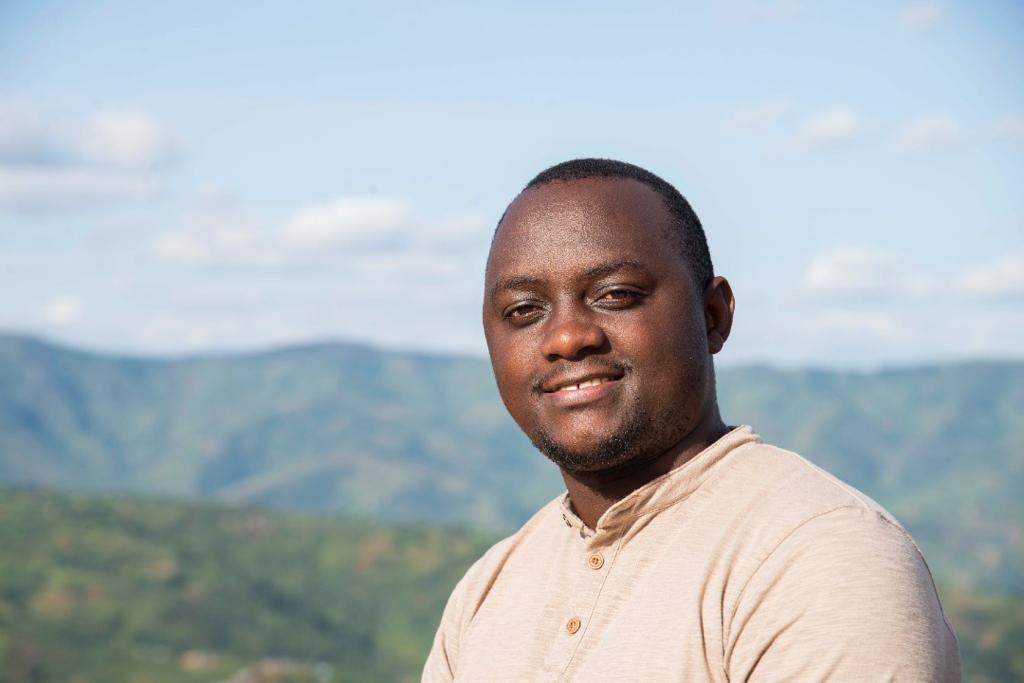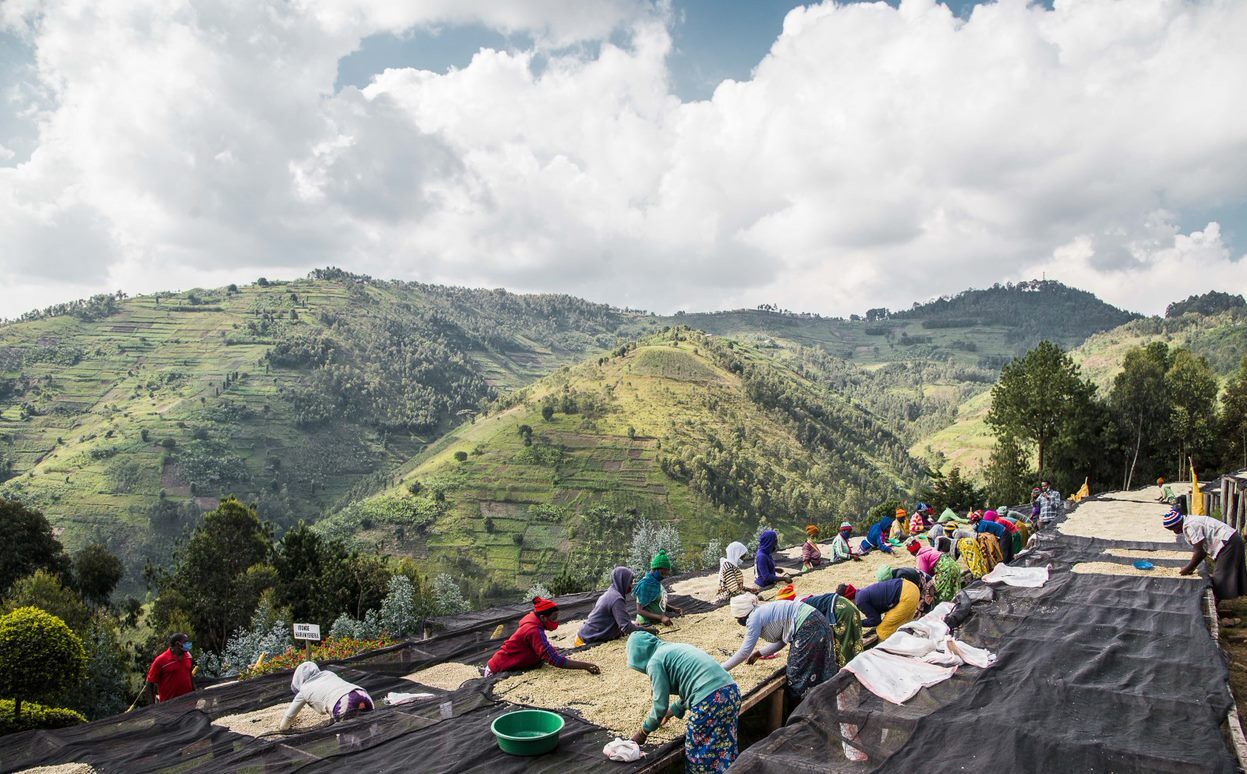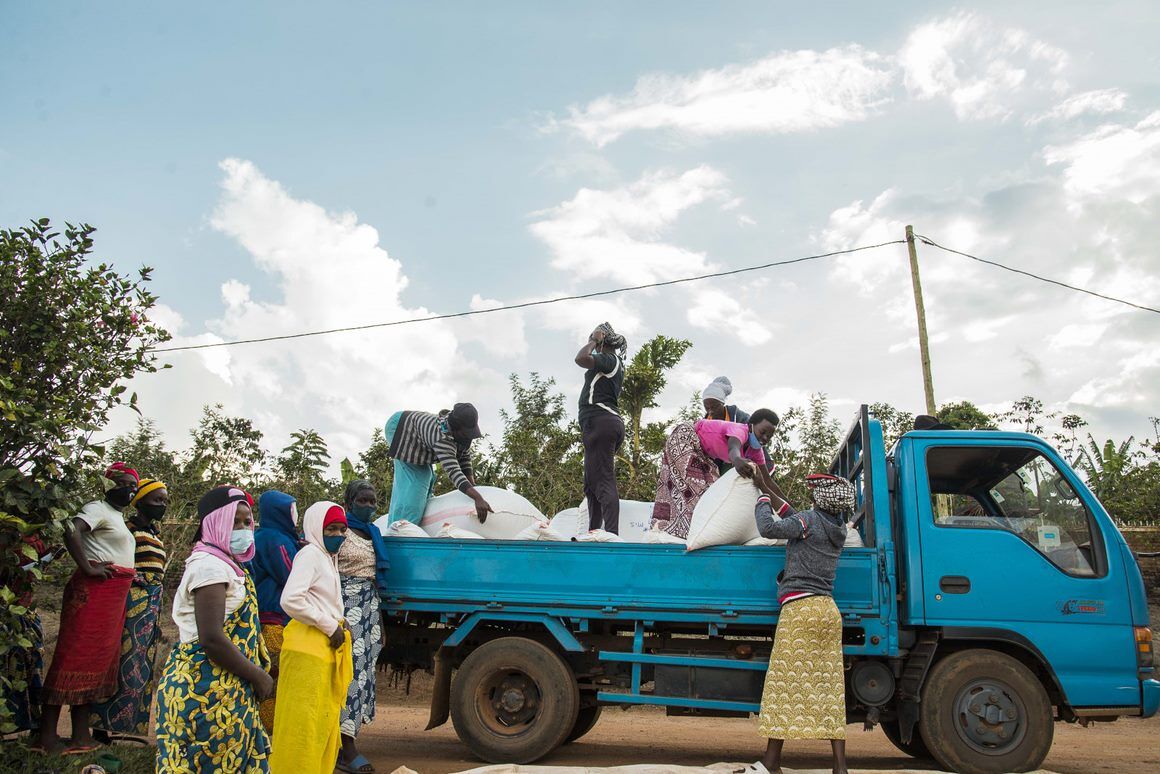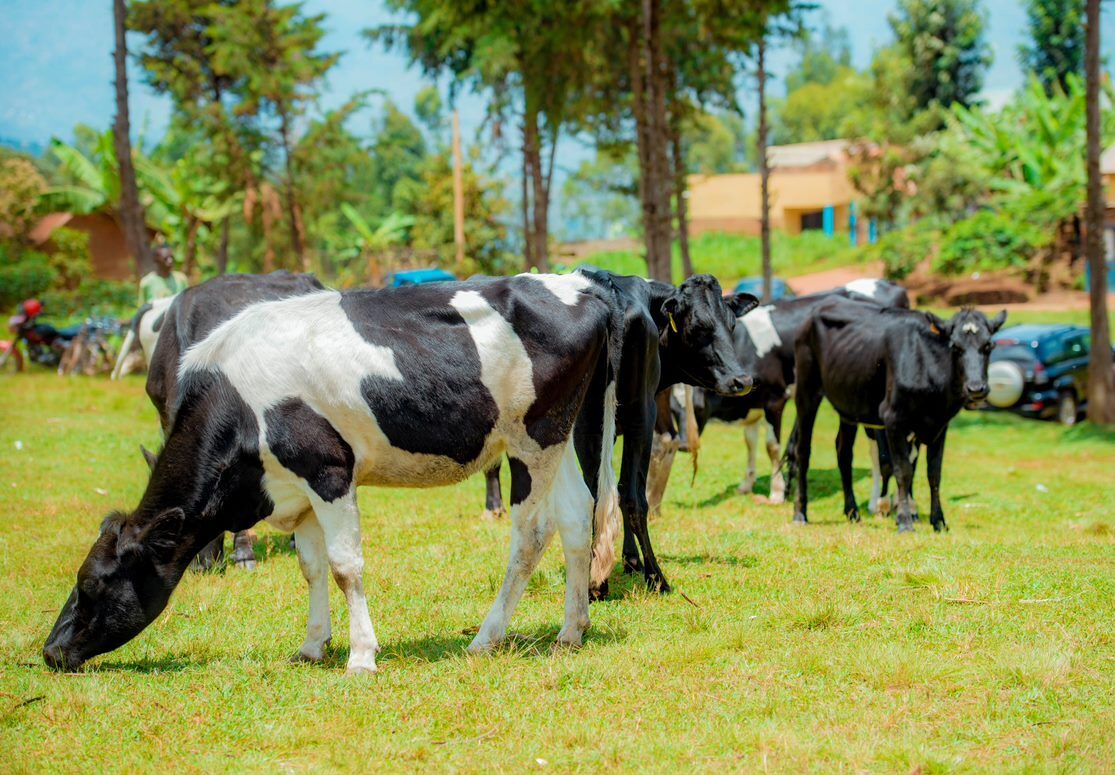
Dukundekawa, an exemplary cooperative in Rwanda
Ernest Nshimyimana is Managing Director of the Dukundekawa cooperative, or “Let's love coffee”, in English. Founded in 2003, the cooperative is located 50 km from Kigali, the country's capital, in northern Rwanda. An exemplary cooperative to discover in Ernest's company!
Hello ernest, can you introduce the Dukundekawa cooperative?
Dukundekawa is one of the biggest cooperative in Rwanda. Since its creation, it has been growing every year. We now have 4 washing stations : Ruli, Mbilima, Nkara and the more recently built, Musambira.
We have a dry mill, a roastery, a café, and a dairy. The dairy is a separate business. We provide cows to coffee producers and then collect the milk to make yogurt, cheese, and other final products.
How long have you been working in coffee?
It will be ten years in a few months. I started as an agronomist for the NGO Sustainable Harvest. I’ve joined the Dukundekawa cooperative as one of the cooperatives beneficiaries. At a district level, I was training the producers about the coffee business, and the financial and market sides of it.
In 2020, when the cooperative was rocking, Dukundekawa hired me as an independent consultant. I was responsible for marketing and public relations. Then, I applied to be the manager of the cooperative. Three years later, I'm still there!

Can you tell me more about the location of the cooperative, and why is it a good place for coffee production?
The cooperative is located in the northern part of Rwanda. It's a hillside region and the soil is mostly volcanic. Half of the year, it's the rainy season. And the altitude is about 2000 meters above sea level. These are good conditions to produce high-quality coffee.
Also, the farmers over here have been growing coffee for decades. They received training to produce quality coffee. The cooperative itself has invested in quality infrastructures from wet mills to dry mills, and skillful staff.
How would you describe the cup profile of Dukundekawa's coffees?
It's mostly floral, with a beautiful, juicy and complex acidity. We only do red bourbon, which is a variety known to be adaptable, favorable in high altitudes like ours, and produce high quality. It meets all the quality requirements appreciated by the coffee experts around the globe!
How many farmers work with the cooperative, and what is your relationship with those farmers?
We are fully owned by the members of the Dukunde cooperative. There are two different categories of farmers we work with.
There are core members, the ones owning the cooperation. They are 1200 core members. We also have non-members who work with the cooperative, but only sell us their coffee. They are around 4000 members.
When the harvest is on, all the members deliver their coffee to one of our site collections, in nearby areas. These collection stations are no more than 10 minutes from the farms.
Then, the coffees are sent to the washing stations by cooperative trucks. However, there are also some nearby farmers who deliver their harvest to the coffee washing station by head or bicycle.

What can you tell us about this year's harvest?
We are very grateful to have two harvests seasons in the Northern part of Rwanda. We have the peak season, from March to May. And there is the second season, which starts in June and ends in October.
In the peak season, we receive 20 to 40 tons a day, and in the second season, we barely receive about 2 to 4 tons per day.
Because of the heavy hailstone rains at the beginning of the harvesting season, we lost over 40% of the total production this year. There were storms in some regions, and part of the crops and coffee trees were destroyed, which is really challenging for farmers.
They depend on over 90% of coffee production. So imagine a farmer hiring people for the harvest, and losing a great part of his farm and production…
Was the cooperative able to help these producers?
We provide support to all farmers to get a micro loan, without interest, to respond to their needs for 3 months.
We're also working on a fund for emergencies, to provide additional help for workers who are victims of bad weather conditions. It should open during the second semester of 2023.
Our capacity to support farmers is still limited, but we try our best. We train them in using shade trees the whole year to prevent bad meteorological conditions, protect the coffee trees and on the production of other farm products, so they can have additional revenues.
Speaking of other revenues, i wanted to talk about the Musasa dairy, and the partnership you have with Belco on this project.
For each kilo of coffee bought by Belco, there is $0.20 put aside to buy cows. Since 2021, we have collected over $8,000 and bought ten cows. All the newborn calves shall be passed onto neighbors in need.
Belco is also sensitizing roasters to buy cows to the cooperative. A cow costs between 600 to $800. And the roasters who support this cause can attend the day we give the cow to the farmer. It's creating a real and direct relationship between the farmer and the roaster.
The cow is a symbol of prosperity in Rwandan society, and milk production provides a great financial opportunity. We buy the milk from the producers, which represents a minimum of $1,5 per day of new income for them. We do yogurts or other final products we then sell.
It creates new profits for the cooperative. So, when you support a farmer buying a cow, ultimately, you support the whole Dukunde community.

Talking about supporting the community, is it what you want to achieve through the Musasa Coffee School?
Most of the members of the cooperative are over 60 years old. There is no way we can believe in sustainability without engaging the youth.
The idea behind the coffee school is to create new opportunities. We teach them all they need to know to manage a farm or to work as baristas in the developing hospitality sector.
They learn everything about coffee, from nursery, farming with the best agricultural practices, harvesting, washing station management, to laboratory analysis, export, and preparation.
We think a good barista should know the basics of agronomy, processing and coffee business. Their primary tool is the coffee tree!
Among the 20 graduates we've had so far, 14 are now employed in the coffee sector. The others entered the university to pursue their studies in other fields.
20 years after the cooperative creation, what can we wish for Dukundekawa?
The quality of the producer’s life doesn't reflect the quality of the coffee we produce at Dukunde. Consumers are ready to pay for a quality cup, but how about the producer who is producing this particular coffee?
He should also be living a quality life, have a house, savings, and provide a quality life for his family. We believe in a prosperous farmer for a sustainable coffee.
My dream for all the people working for Dukundekawa Musasa is the following : having a life as good as the coffee they produce. We need a holistic approach to make things better!
Did you like this article? Share it with your community:
